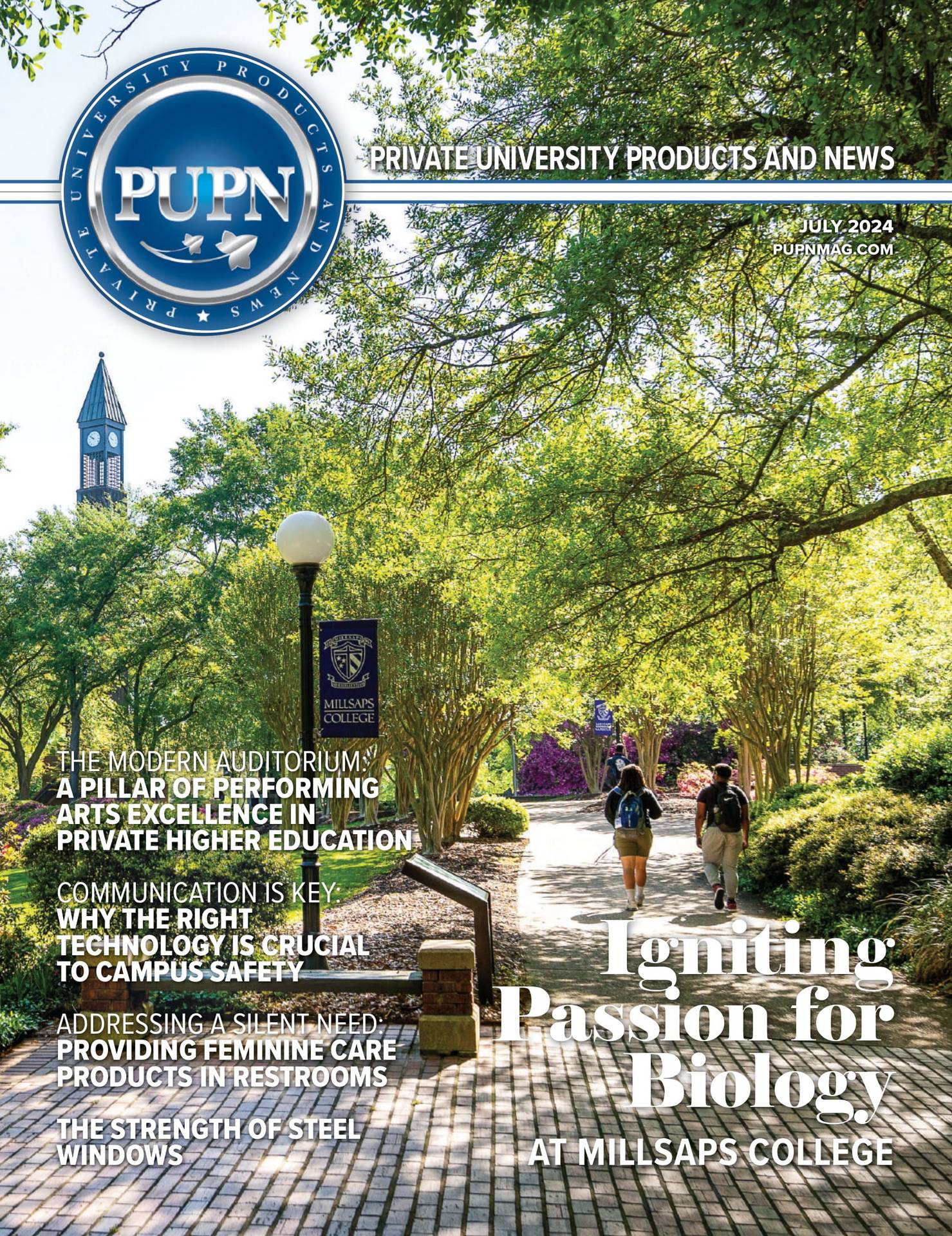Elon University in North Carolina, with an enrollment of around 6,700, modified facility usage and health protocols for campus fitness facilities. Masks are required and capacity is limited in the Stewart Fitness Center, Studio 5, Koury racquetball/squash courts, and the PARC fitness center. Hand sanitizer stations, disinfecting wipes and disposable paper towels can be found throughout the facilities. Students must reserve a workout time and are allowed only one sixty-minute slot per day. All equipment is cleaned by staff between sessions and monthly deep cleaning has been increased to weekly. In locker rooms, general changing areas and showers are closed. The pool is closed for the school year. Guests are no longer allowed to use the fitness facilities.
In addition to the indoor facilities, Elon has two outdoor fitness areas, an 18-acre site with a lodge and a driving range for golf. The Elon Challenge and Experiential Campus is used for academic courses, high- and low-ropes challenges, and includes an outdoor classroom and a lodge. The university removed the drop-in option for this part of the campus and added a hand sanitizer stations to the lodge. The driving range for golf, a sport where social distancing can be easily accomplished, is open for drop-ins and maintains regular hours of operation. The range has twelve hitting bays and two practice greens. A hand sanitizer station and Ready & Resilient signage was added along with a container for golf ball baskets, which are washed by staff after use.
Since returning to campus in January, Elon University has maintained Level 1 (blue)—Moderate Alert. The virus is present with a low, but steady number of identified cases and some in quarantine/isolation. With weekly testing and health protocols in place, Elon appears to be mitigating the spread of the virus.
The University of Miami in Florida, with an enrollment of more than 17,000, is taking similar steps at the UHealth Fitness and Wellness Center. Face masks are required, hand sanitizer and sanitizing wipes are available, and regular cleaning of the Center has been increased. Reservations are required and members may bring a water bottle with them and use the bottle filling stations. Locker rooms and showers are closed and there is no towel service. The Center has suspended community membership, allowing only faculty, staff, students and alumni to use the facility. Only members are allowed and they must make a reservation to use the facility. Out of respect for members who choose to not return just yet, membership fees are waived. The indoor pool is closed for renovations and the outdoor pool is limited to student use only.
The Outdoor Adventures facilities on campus also modified usage and increased cleaning. The sand volleyball courts are for practice only with no competitive play allowed. The Outdoor Gym, which features MyEquilibria equipment, is now limited to a maximum of eight. Outdoor Adventures includes an indoor climbing wall for which reservations must be made and students must follow guidelines as indicated by signage and monitored by staff.
Spring classes at the University of Miami began near the end of January. All faculty, staff and students are required to receive a flu shot as well as complete We Are One U: COVID-19 Safety Principles training. All faculty and staff are required to check and record their health status daily by using the UMiami mobile app. COVID-19 testing is mandatory for students prior to the start of classes and will be administered weekly. Thus far, protocols put in place by the University of Miami appear to be working to help slow the spread of the virus. The university has recorded only 178 cases of the virus since August 2020.
Classes for both Pepperdine University and the University of San Francisco are remote for the spring 2021 semester, as they were for fall 2020. At Pepperdine University in Malibu, California, enrollment is just under 7,700. All fitness facilities are closed until further notice. Campus Recreation at Pepperdine is encouraging physical fitness by providing links to resources for home-based workouts. The University of San Francisco, where enrollment is just over 11,000, has also closed their health and recreation center. Resources for at-home fitness classes and a special spring sports challenge accessible via the Koret Health and Recreation Center’s Instagram page are ways that the University of San Francisco is engaging students in physical fitness.
Fitness and recreation centers provide ways to increase physical health, an important aspect of overall well-being. Private colleges and universities are supporting the health of their communities by maximizing the use of technology to encourage physical activity while minimizing the number of in-person participants. Higher education leaders have worked diligently to slow the spread of COVID-19, and faculty, staff, and students are to be commended for adapting to new ways of teaching, learning, communicating and interacting.










